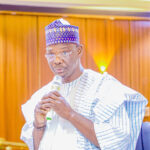Hoteliers in Ogun State have called on the federal government to urgently address the poor power supply and multiple taxation in order to save the hospitality business from imminent collapse.
The President of Hoteliers Association of Nigeria (HAN), Ogun State chapter, Otunba Segun Timi, spoke at the official commissioning of the Association’s secretariat and inauguration of new exco in Abeokuta on Tuesday.
Daily Trust learnt that no fewer than 25 new executive officers and 12 zonal chairmen were inaugurated at the occasion.
Timi called on the federal government to create hospitality ministry and hospitality banks as part of moves to tackle the challenges facing the hospitality business.
This, he said, would help the sector to grow and automatically have effect on the country’s economy.
Timi maintained that if the federal government failed to address the challenges, the sector would totally collapse.
“We cannot survive without power supply. This lack of electricity is crippling our business. We spends enormous amount on diesel and petrol to manage our business.
“Also, the rate of tax on us is too high, the operational cost of our business is killing.
“Yet, the government have not yielded to our yearnings, they are always telling us to be calm and till now nothing concrete is done,” he said.

 Join Daily Trust WhatsApp Community For Quick Access To News and Happenings Around You.
Join Daily Trust WhatsApp Community For Quick Access To News and Happenings Around You.



